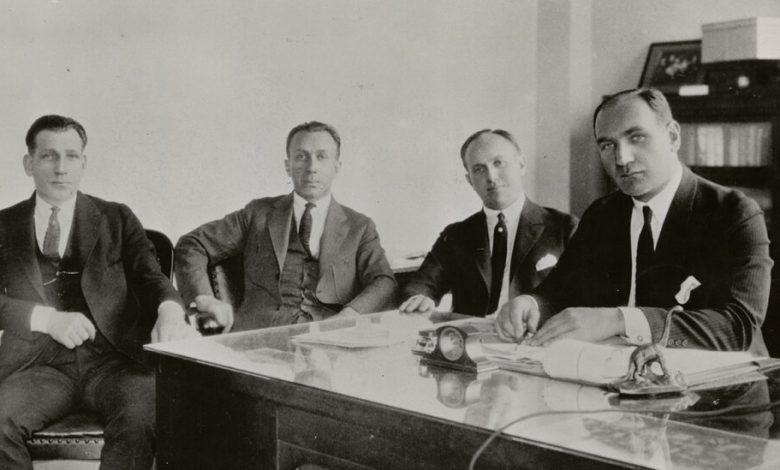What Does Hollywood Owe Its Jewish Founders?

The Jews who founded Hollywood — and make no mistake, the big studio heads were overwhelmingly Jewish — shared several things: ambition, creative vision and killer business instincts.
But more than anything else, the men who were the driving forces behind Paramount, 20th Century Fox, Warner Brothers, Universal, Columbia and Metro-Goldwyn-Mayer shared a very 20th-century sense of being Jewish in America. They were assimilationists who considered themselves American above all else and who molded Hollywood to reflect and shape their American ideals.
“Above all things, they wanted to be regarded as Americans, not Jews,” Neal Gabler wrote in his definitive 1988 history, “An Empire of Their Own: How the Jews Invented Hollywood.” Louis B. Mayer, a co-founder of MGM, went so far as to claim that his birth papers had been lost during immigration and to declare his birthday henceforth as the Fourth of July.
It was troubling, then, that when the Academy Museum of Motion Pictures opened in 2021, it neglected to integrate Jews into its portrayal of Hollywood’s early days and later successes despite obvious attentiveness to other ethnic and racial groups. Beyond a few brief mentions, including Billy Wilder fleeing Nazi Germany, a photo of the MGM mogul and academy founder Louis B. Mayer looming over Judy Garland, and a few scoundrels in an exhibit on #MeToo, Jews were absent. Jewish studio heads, business leaders and actors were almost entirely shut out, an oversight that led to much outcry.
“It’s sort of like building a museum dedicated to Renaissance painting and ignoring the Italians,” the Hollywood historian and Brandeis University professor Thomas Doherty told Rolling Stone at the time.
When I asked the museum’s former director and president Bill Kramer, now the C.E.O. of the American Academy of Motion Picture Arts and Sciences, what he made of the omission, he did not acknowledge the error but said museum officials took the criticism seriously. “It was clear that this was something that certain stakeholders were expecting,” he said. “That in some visitors’ minds this was an omission that needed to be corrected.” Did he think the criticism was valid? “It was how people felt. And those feelings were real and feelings are valid.”
